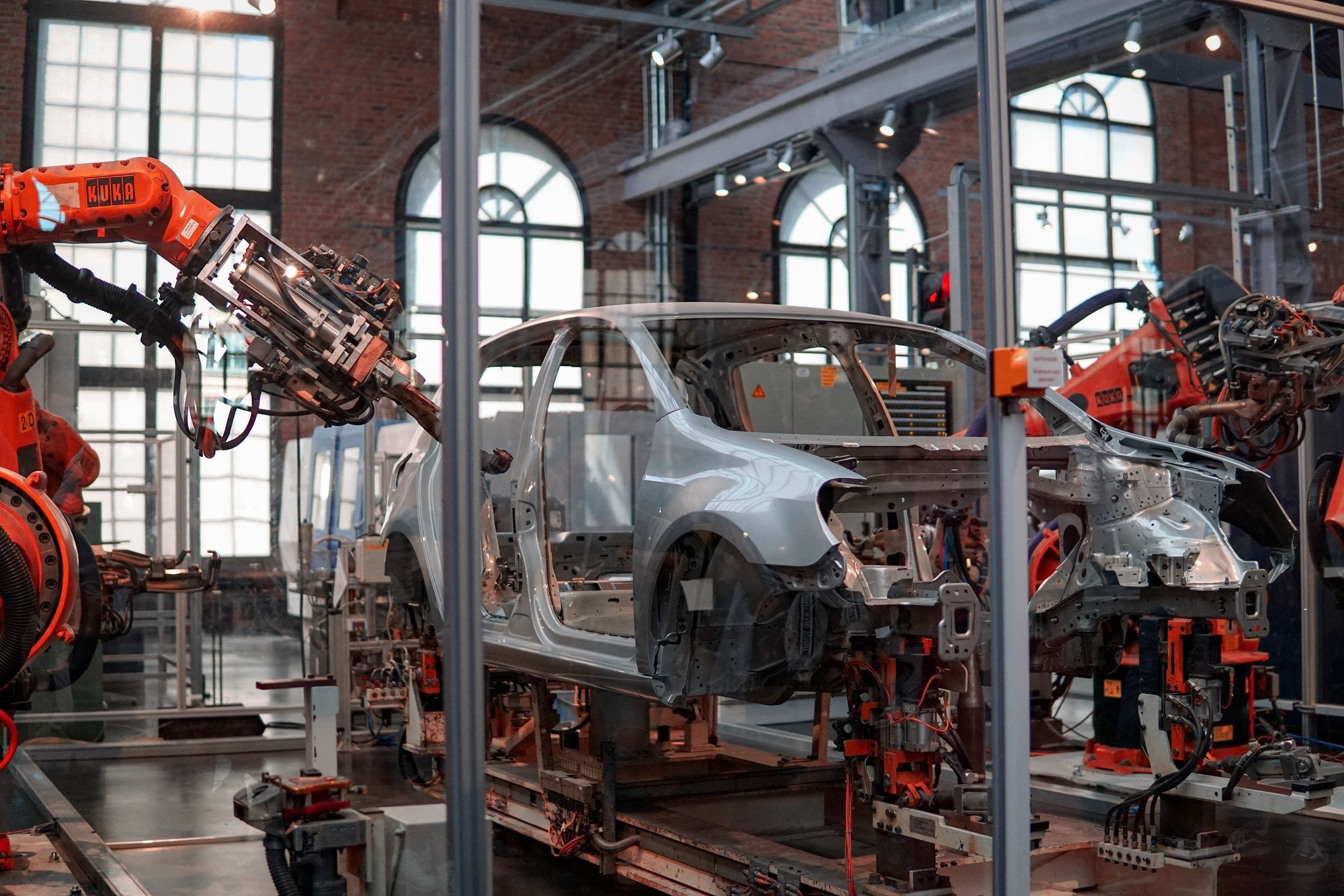Generative AI isn’t just coming for factory jobs—it’s gunning for BMW’s engineers and analysts.
Munich, Germany – In a sleekly worded press release titled ”Greater Efficiency and Productivity with Artificial Intelligence," BMW Group recently unveiled its latest foray into generative AI, promising faster development cycles, optimized workflows, and smarter decision-making. But beneath the corporate optimism lies an unspoken reality: the auto giant is quietly preparing for a seismic shift in its workforce—one that could see AI replacing not just assembly-line workers, but engineers, software developers, and mid-level managers.
While BMW frames AI as a "co-pilot” for employees, industry analysts and AI experts warn that this marks the beginning of a profound restructuring—one where highly skilled jobs once considered untouchable are now in the crosshairs of automation.
See also:
The AI Takeover Isn’t Just About Robots—It’s About Coders, Engineers, And Analysts

For decades, the specter of automation haunted factory floors. Robots replaced welders; self-guided carts displaced forklift drivers. But BMW’s latest AI push signals a new frontier: the erosion of white-collar jobs in the automotive sector.
The company’s announcement highlights AI applications in ”code generation, data analytics, and decision-making processes”—tasks traditionally performed by well-paid professionals. BMW insists these tools will “augment” employees, but history suggests otherwise. When German industrial giant Siemens introduced AI-driven design software, it reduced engineering manpower needs by 30% in some divisions.
“Companies never lead with ‘we’re cutting jobs,’” says Dr. Elena Müller, a labor economist at the Technical University of Munich. “They say AI is an ‘assistant’—until suddenly, fewer humans are needed.”
The Proof In The Patterns: AI’s Quiet Incursion Into Corporate BMW

BMW hasn’t announced mass layoffs—yet. But the trajectory is clear: Generative AI for code development means fewer software engineers are needed to write and debug vehicle software.
-AI-powered data analysis reduces the need for large teams of business analysts. Similarly, automated decisions-making algorithms could shrink middle management roles.
A 2023 McKinsey report estimated that up to 30% of tasks in the auto sector’s engineering and corporate functions could be automated by 2030. BMW’s AI investments suggest it’s moving even faster.
The Human Cost: What Happens To BMW’s Workforce?

BMW employs over 150,000 people worldwide, many in Germany, where labor protections are strong. The company can’t simply fire thousands—but it can attrit its workforce over time.
Specifically, as of 2024, BMW's global workforce sums up to approximately 159,100 people. This number has grown over the years, reflecting the company's expansion and influence in the automotive industry.
“Natural turnover, early retirements, and hiring freezes are how this plays out,” says Lars Schmidt, a former BMW HR strategist. “They won’t replace every engineer who leaves.”
Some employees are already feeling the shift. A software developer at BMW’s Munich R&D center, speaking anonymously, said: ”We used to have teams of 10 working on a module. Now, AI drafts the code, and we just refine it. Management hasn’t said it outright, but we know what’s coming.”
See also:
The Bigger Picture: A Looming Crisis For Germany's Skilled Workforce

Germany’s economy thrives on high-value engineering and manufacturing jobs. If BMW—a bellwether for the industry—replaces even 10-15% of its knowledge workers with AI, the ripple effect could be catastrophic.
Technical universities may see declining demand for certain engineering degrees. Unions, which have long protected factory workers, are unprepared for AI-driven white-collar displacement. The Mittelstand (Germany's SME backbone) could face similar pressures as AI spreads.
“The social contract in Germany is built on skilled, stable employment,” says Müller. “If AI unravels that, the political backlash could be severe.”
BMW’s Dilemma: Innovate Or Perish

Far from adopting AI out of malice, BMW is fighting for survival. Tesla’s AI-heavy manufacturing and China’s rapid EV advancements have forced traditional automakers to slash costs and speed up innovation.
“Legacy automakers have no choice,” says automotive analyst James Carter. “If they don’t embrace AI, they’ll be outcompeted. But if they do, they’ll hemorrhage jobs. It’s a lose-lose for workers.”
What comes next?
The question isn’t whether BMW’s AI push will displace jobs—it’s how fast, and how painfully.
- Will Germany’s unions push back?
- Can workers reskill quickly enough?
- Will governments intervene with AI-specific labor laws?
For now, BMW’s press release spins AI as a productivity booster. But behind closed doors, the real conversation is about who stays, who goes, and whether the auto industry’s white-collar workforce is headed for obsolescence.
All of this makes one truth a given: The robots aren’t just coming for the factory. They’re coming for the office, too.